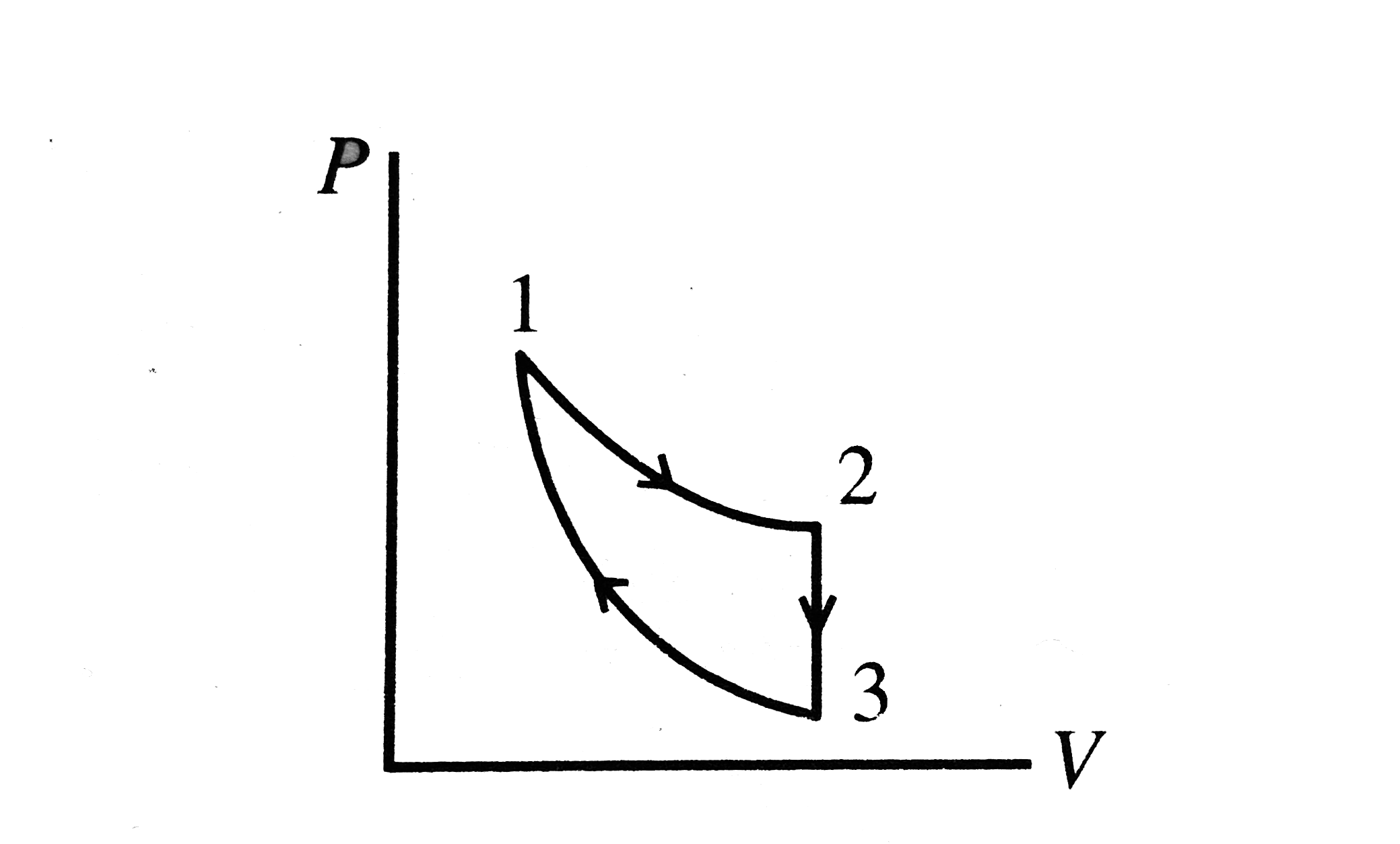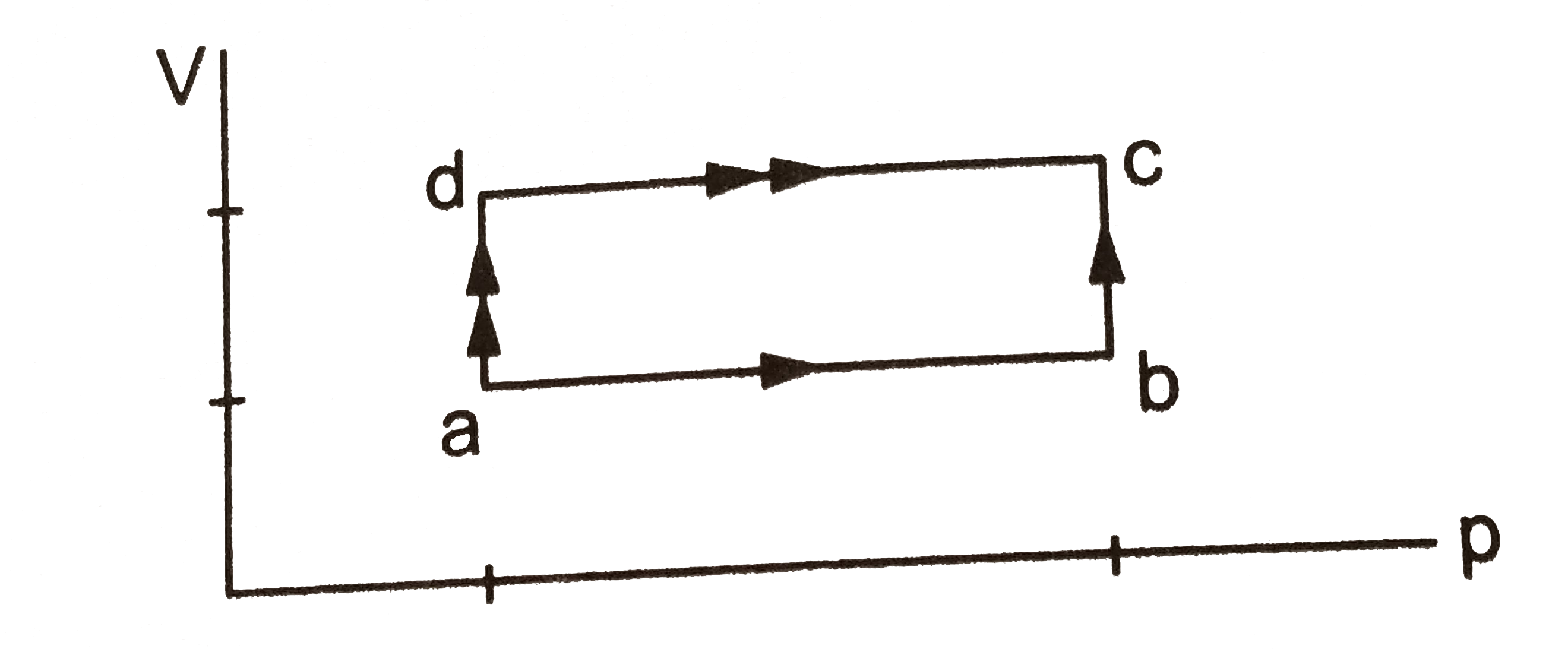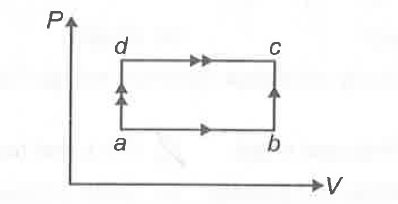In a process, 701 J of heat is absorbed by a system and 394 J of work is done by the system. What is the change in internal energy of the process?
To find the change in internal energy of the process, we can use the first law of thermodynamics, which states:
ΔU=Q+W
Where:
- ΔU is the change in internal energy,
- Q is the heat absorbed by the system,
- W is the work done by the system.
1. Identify the given values:
- Heat absorbed by the system, Q=+701J (since heat is absorbed, it is positive).
- Work done by the system, W=−394J (since work is done by the system, it is negative).
2. Apply the first law of thermodynamics:
ΔU=Q+W
3. Substitute the values into the equation:
ΔU=701J+(−394J)
4. Perform the arithmetic:
ΔU=701J−394J=307J
5. Conclusion:
The change in internal energy of the process is:
ΔU=+307J
- ΔU is the change in internal energy,
- Q is the heat absorbed by the system,
- W is the work done by the system.
- Heat absorbed by the system, Q=+701J (since heat is absorbed, it is positive).
- Work done by the system, W=−394J (since work is done by the system, it is negative).
ΔU=Q+W
ΔU=701J+(−394J)
ΔU=701J−394J=307J
The change in internal energy of the process is:
ΔU=+307J
Topper's Solved these Questions
- CHEMICAL THERMODYNAMICS BOOK - ICSECHAPTER - CHEMICAL THERMODYNAMICS EXERCISE - NUMBERICAL PROBLEMS
18 Videos
- CHEMICAL BONDING AND MOLECULAR STRUCTUREBOOK - ICSECHAPTER - CHEMICAL BONDING AND MOLECULAR STRUCTUREEXERCISE - NCERT TEXT-BOOK EXERCISES ( WITH HINTS AND SOLUTIONS)
47 Videos
- CLASSIFICATION OF ELEMENTS AND PERIODICITY IN PROPERTIESBOOK - ICSECHAPTER - CLASSIFICATION OF ELEMENTS AND PERIODICITY IN PROPERTIESEXERCISE - NCERT TEXT-BOOK. EXERCISE (With Hints and Solutions)
63 Videos
Similar Questions
Knowledge Check
A system is provided 50 J of heat and work done on the system is 10 J. The change in internal energy during the process is
A40 JB60 JC80 JD50 J.A system absorbs 50 kJ heat and does 20 kJ of work. What is the net change in the internal energy of the system ?
AIncrease by 30 kJBDecrease by 30 kJCIncrease by 70 kJDDecrease by 70 kJ
For a gaseous system, if heat rejected by the system is 100J and work done by the system is 20J , then change in internal energy is
View SolutionA system is provided 50J of heat and work done on the system is 20J. What is the change in the internal enegry?
View SolutionA system is provided 50J of heat and work done on the system is 20J. What is the change in the internal enegry?
View SolutionThree processes compose a thermodynamic cycle shown in the accompanying P−V, diagram of an ideal gas.
Process 1→2 take place at constant temperature, during this process 60J of heat enters the system.
Process 2→3 takes place at constant volume. During this process 40J of heat leaves the system.
Process 3→1 is adiabatic.
What is the change in internal energy of the during process 3→1?
View Solutionwhen a system is taken through the process abc shown in the fig. 80 J of heat is absorbed by the system and 30 J of work is done by it. If the system does 10 J work during the process adc, how much heat flows into it during the process ?

View SolutionWhen a process is taken from process abc 100 J of heat is absorbed by system and 50 J of work is done by it. If work done in process adc is 60 J, then heat absorbed in this process

View Solution
